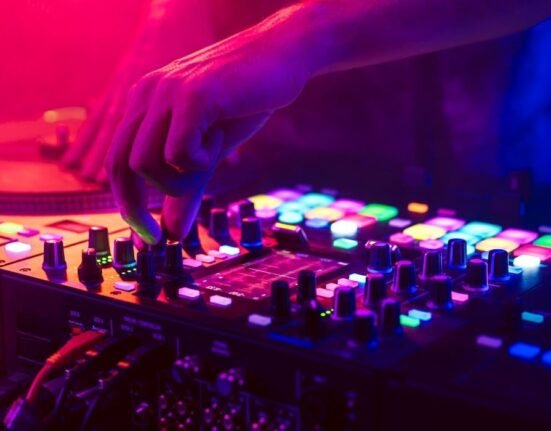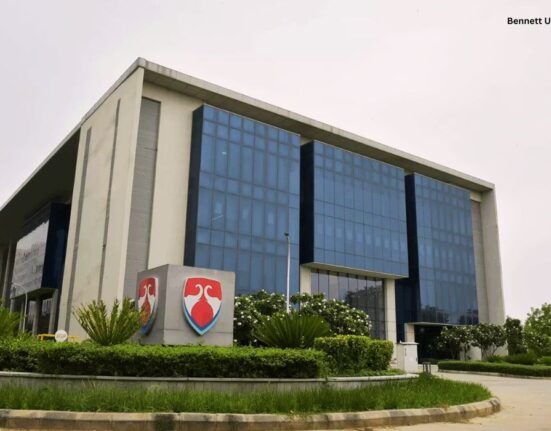Zakir Hussain, a legendary tabla musician known for his creativity and cultural impact, passed away today at the age of 73 in San Francisco. The family confirmed it in a formal statement, symbolising an end to an era for not only Indian classical music but also for cross-border-global fusion. Embodying charisma with an innate flair to bind different styles and genres of music, his demise has left a huge hole in the world of music and arts.
A Legacy Etched in Rhythm
Zakir Hussain, born on 9 March 1951, in Mumbai, is the son of the legendary tabla player Ustad Allah Rakha who took the tabla into international foray as a solo instrument. Being born and brought up in a family of music, Zakir initiated formal training from his father, spending hours refining his art. He was naturally gifted and spent real-time working hard, bringing him to become a child prodigy.
At the tender age of 12, he was accompanying the stalwarts of classical music, Pandit Ravi Shankar and Ustad Vilayat Khan, earning recognition and awards for his innovative interpretation of rhythm. His fingerwork was lightning fast, with subtle nuances and was able to connect deep emotional expressions through his instrument.
“As We Speak” live session shot at Troy Music Hall. Watch the full video on YouTube: https://t.co/PdEF31paV1 pic.twitter.com/HgGf28eFen
— Béla Fleck (@belafleckbanjo) May 23, 2023
But it was during the 1970s that his fame took off when he began to enter into collaborative projects in the world of music. His work with the band Shakti, formed by John McLaughlin, combined the intricacies of Indian classical into jazz, and, thus, set the gold standard in the world of music fusion. Live performances by the band were like a curtain rising on the secrets of Indian rhythm structures made known to an audience imbued with the improvisational spirit of jazz.
Over the years, Hussain worked with many great ones like Yo-Yo Ma in the Silk Road Ensemble, George Harrison during his forays into Indian music, and Bela Fleck, making genre-defying music that is being played and revered by musicians all over the world.
Music and Spirituality – Zakir Hussain’s Beliefs
Zakir Hussain always said that music is not merely entertainment, it has a spiritual dimension that can elevate consciousness and give inner peace. He often explained how rhythm and melody are much more than art themselves. They connect with something much deeper in human experience.

Music can aid relaxation and enable individuals to discover their spiritual selves. To Hussain, each note throbbing in the tabla during his performances rings with the throbbing depth of emotional and cultural significance within India. Music in this sense becomes an international tongue that can traverse boundaries, displacing them in terms of communities making sense of themselves. Music wouldn’t be complete as an expression if it didn’t add to mental health and spiritual well-being.
Awards and Accolades
Zakir Hussain’s contribution has been duly recognized by various awards and honours, which confirms the impact he has made on the music of not only India but the world as well. He received the Padma Shri in 1988 and Padma Bhushan in 2002 which are among the highest civilian awards given by the Government of India as endorsing his role in getting Indian music internationally popularized.
In 1992, he became the youngest percussionist to be conferred with the prestigious Sangeet Natak Akademi Award, India’s highest award in performing arts. He was also awarded international acclaim of the Grammy Award for 1992 in the category, for the collaboration project with Mickey Hart titled, Planet Drum, in recognition of worldwide percussion traditions.

In 2021, Hussain became the recipient of the Grammy Lifetime Achievement Award, reflecting the artist’s achievements for which he has been awarded. Only a few weeks ago, his legendary band Shakti received it for Best Global Music Album for their new album project, This Moment. The album embodies Hussain’s continued boundary-pushing in terms of musical inspiration while still being rooted in tradition, thus ensuring that his legacy is among the pioneers of music transformation.
Champion of Cultural Diplomacy
Besides his godly skills, he was a cultural ambassador who believed that music could bridge all divides. Hussain performed in famous venues like Carnegie Hall, Royal Albert Hall, and the Sydney Opera House, which opened the whole world to Indian classical music. It was he who established the tabla not merely as an accompaniment instrument but also as a solo voice, very strong and capable, of telling the stories.
This tribute to Hussain’s art is not the only one revered and highly regarded among eminent musicians. One such cooperation is with guitarist John McLaughlin, who oftentimes goes into the record as having told audiences how Hussain bridges cultural differences through music. Hussain defines himself as not just a musician, but as being a “musical diplomat”. He would shift the music parameters around and still keep his Indian roots. In the same vein, another great jazz figure, Herbie Hancock, praised Hussain’s new invention in percussion, applying some Indian classical music in modern settings.
Hussain’s scholarly pursuits stood on their own as nearly equal to his breakthrough as an artist. Lectures and masterclasses delivered at such prestigious venues as Stanford University, UC Berkeley, and Berklee College of Music provided the opportunity to touch many lives, inspire students, and instil further appreciation for Indian classical music. He kept alive the heritage of Indian rhythm by conducting an annual series of tabla workshops at the Ali Akbar College of Music in California.
Global Acceptance
His reputation is international, cutting across the Indian classical music scene. His works with other artists like Mickey Hart and performance in major events, such as the opening ceremony of the Summer Olympics in Atlanta, can help showcase yet more of his international appeal. Celebrated not only for his techniques but also for unifying various musical traditions, which has earned him several Grammy Awards as well as accolades like the Padma Vibhushan.
Hussain’s Reflections
Hussain expressed a profound connection with his instrument. He describes tabla-playing as a kind of journey in which rhythm tells a story, and he appears to have an experience somewhat akin to riding a roller-coaster. For him, the tabla is not just an instrument but a companion in profound musical conversation. It allows him to create a very rich auditory experience for many audiences around the globe.
A Personal Touch
People who had known Zakir Hussain could only express his infectious energy, humility, and deep love for storytelling through rhythm were what he owned. Be it a tabla solo or a collaboration with international artists, he simply outshone everyone in connecting with the audience. For him, music was a universal language: “The tabla doesn’t just talk; it sings,” he said. Neither on stage nor off stage did his spectators wither away and leave in admiration of him as a person, as much as an artist by his charisma and sense of humour.
Hussain’s personal touch ran deep into his compositions, giving sense-acquiring modernity to the traditional collection of tabla because he desired them to be available to all. He demonstrated the artist’s genius as a traditionalist and modernist in the way he stood true to the classical forms while reinterpreting them for modern audiences.
Tributes Pour In
As news about the demise spreads, tributes pour in from various corners of the world, underscoring the great impact that Hussain made on music and culture. Prime Minister Narendra Modi of India categorized him as “a cultural icon who brought India to world stages through his art”.
Music composer AR Rahman put it: “Zakir Hussain’s tabla was not just an instrument; it was the heartbeat that brought the world together.” Fellow musicians, including long-time collaborator John McLaughlin, expressed their grief and admiration, dubbing him “one of the greatest rhythm maestros of all time”. Social media platforms have been filled with mournful messages from fans, students and admirers alike who all acknowledge the loss of a legend.
A Lasting Legacy
The legacy of Zakir Hussain will always move and inspire people through his recordings, compositions, and the multitude of lives he touched. His massive amounts of compositions and a variety of music genres, which include classical albums and fusion collaborations, as well as experimental projects, serve not only as a hallmark of his versatility and vision but also as his most influential and impactful presence.
Apart from these characteristics, the scale of Hussain’s impact is manifested in various awards, scholarships, and festivals instituted in his honour; all are tangible reminders of how his impact on music would transcend generations beyond his time.
His legacy reminds humanity of the strength of art to cross boundaries and unite people as the whole world cries over the loss of this music genius. The rhythm of Husain’s life has ended, but the echoes of his tabla will reverberate forever in concert halls, classrooms, and the souls of music lovers around the world.
References +
Sharma, K. (2024, December 16). Zakir Hussain biography: Age, education, awards, family and honours. Jagranjosh.com. https://www.jagranjosh.com/general-knowledge/zakir-hussain-biography-1734298892-1
Sinnenberg, J. (2017, January 9). Interview with Zakir Hussain, tabla trailblazer. CapitalBop. https://www.capitalbop.com/zakir-hussain-tabla-trailblazer-still-has-miles-to-go/
तिलकराज. (2024, December 16). अलविदा उस्‍ताद, तबले की थाप से दुनिया का दिल जीतने वाले जाकिर हुसैन का निधन, ऐसा रहा सफर. ndtv.in. https://ndtv.in/india/zakir-hussain-died-in-san-francisco-hospital-pti-7257353












Leave feedback about this